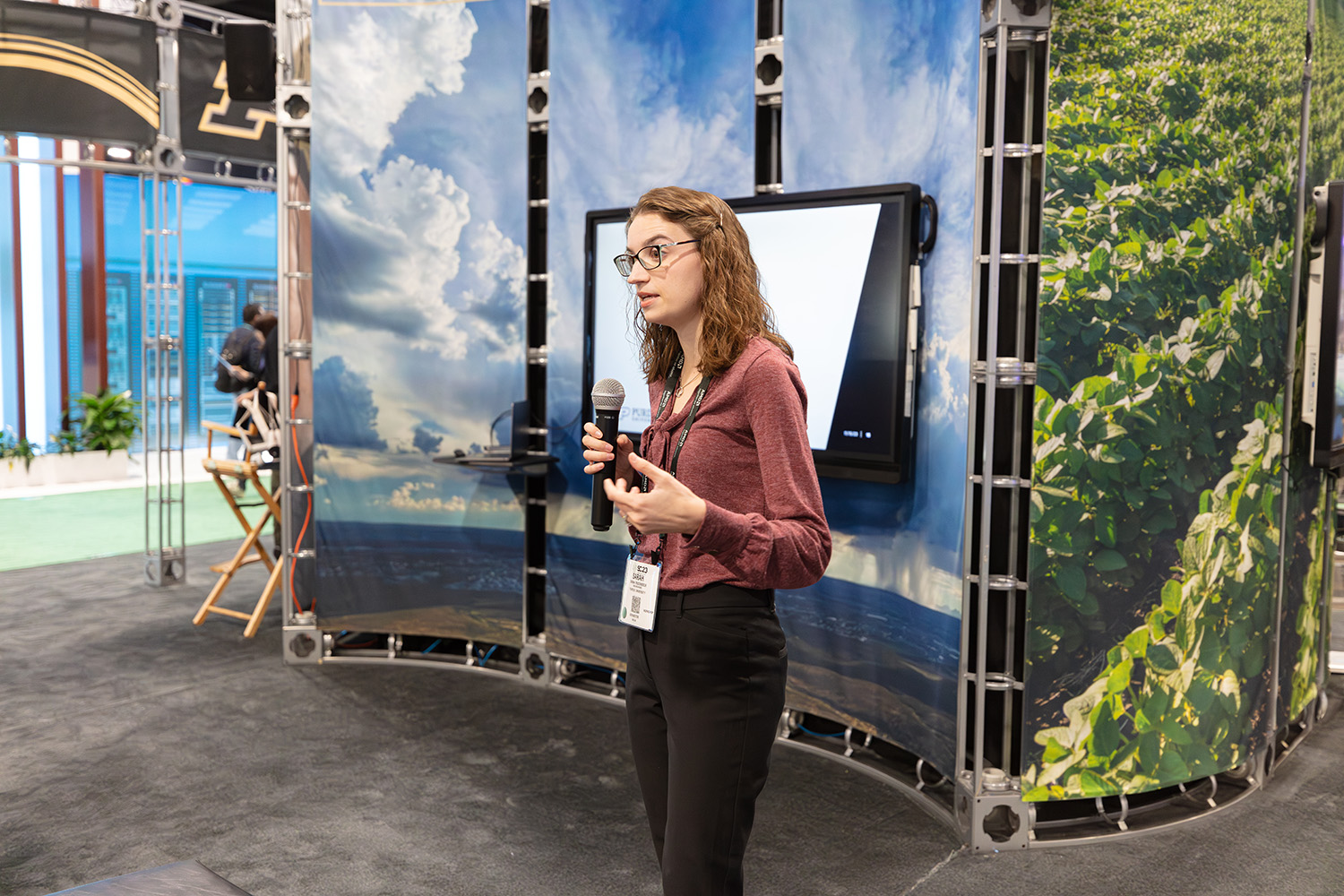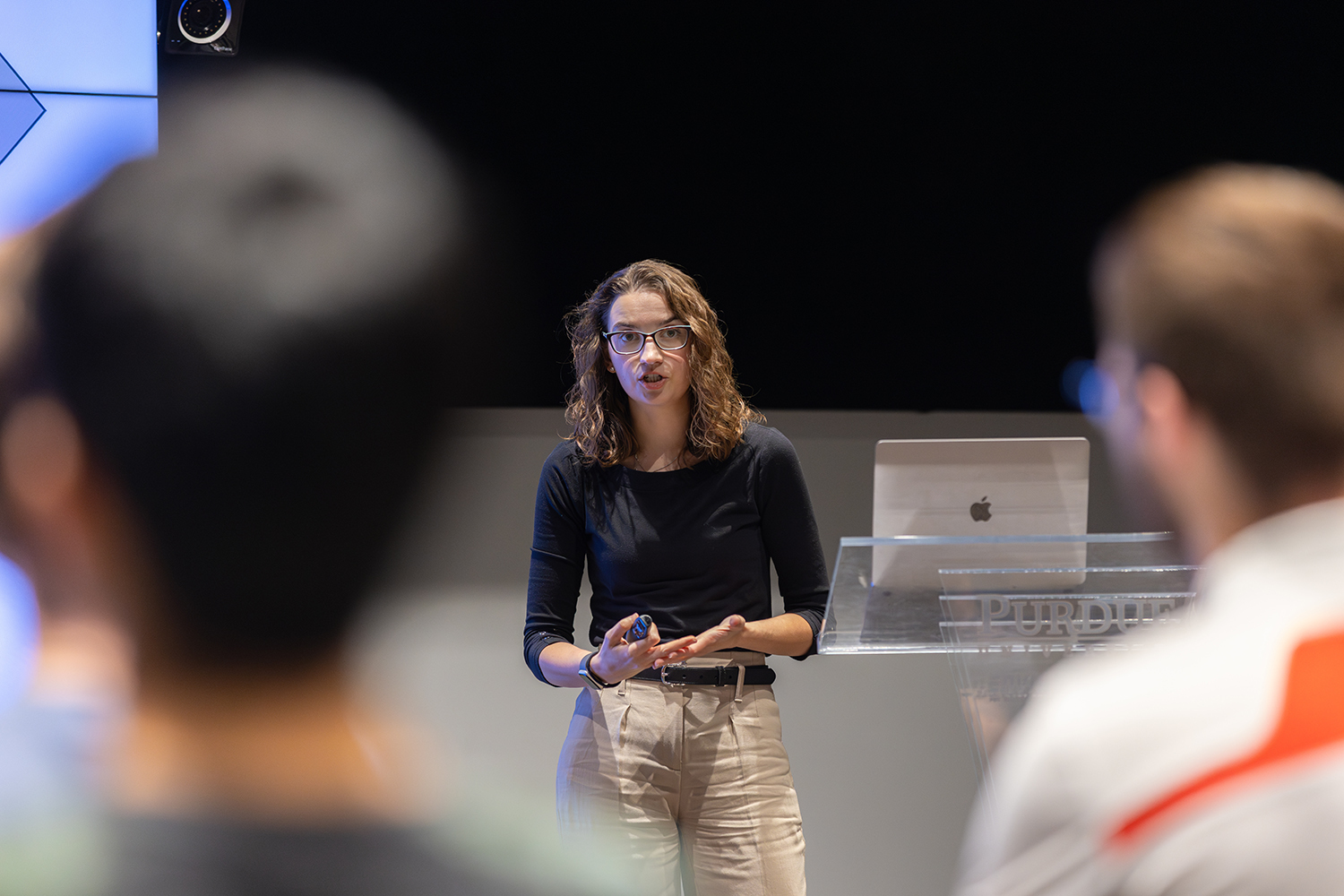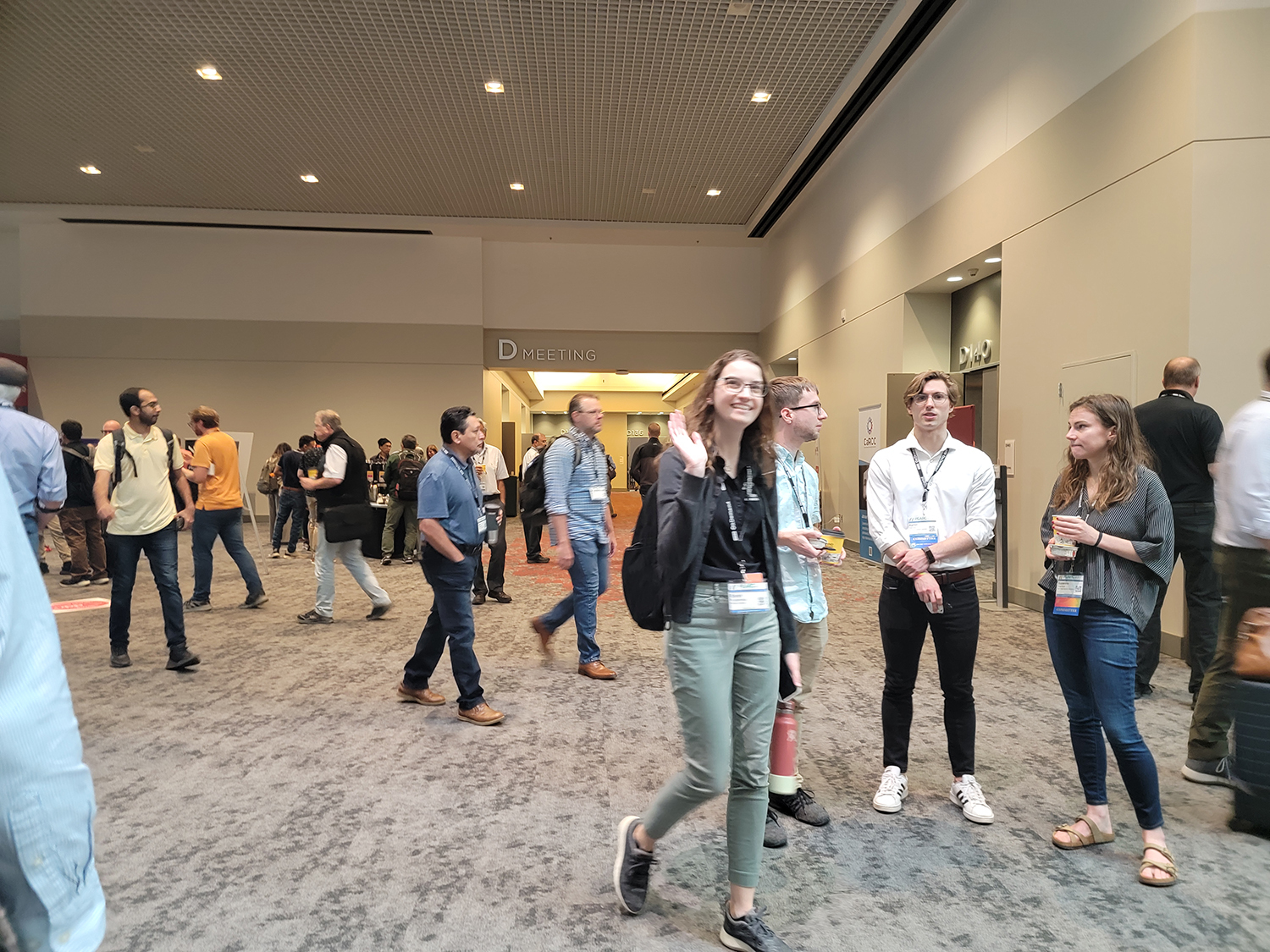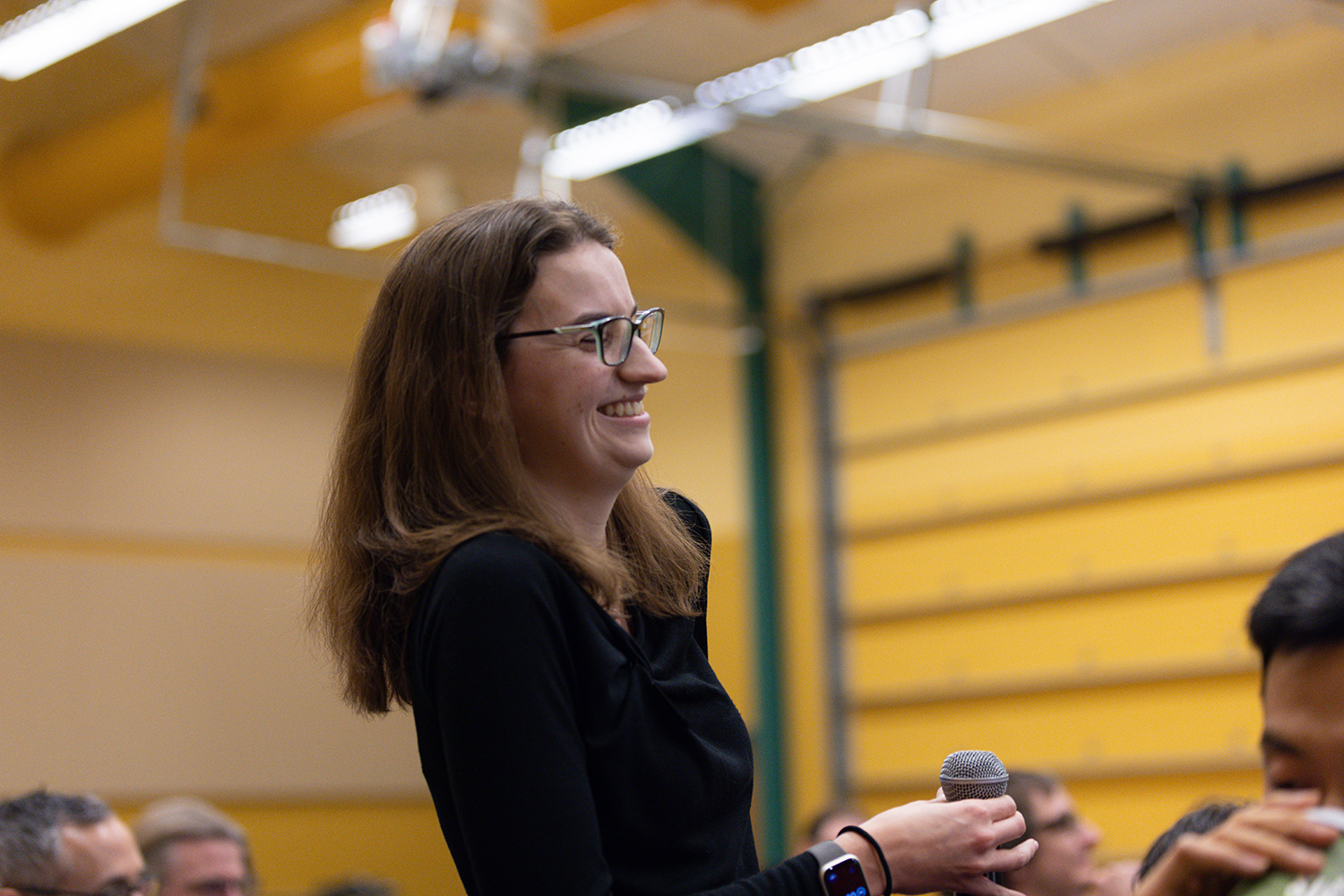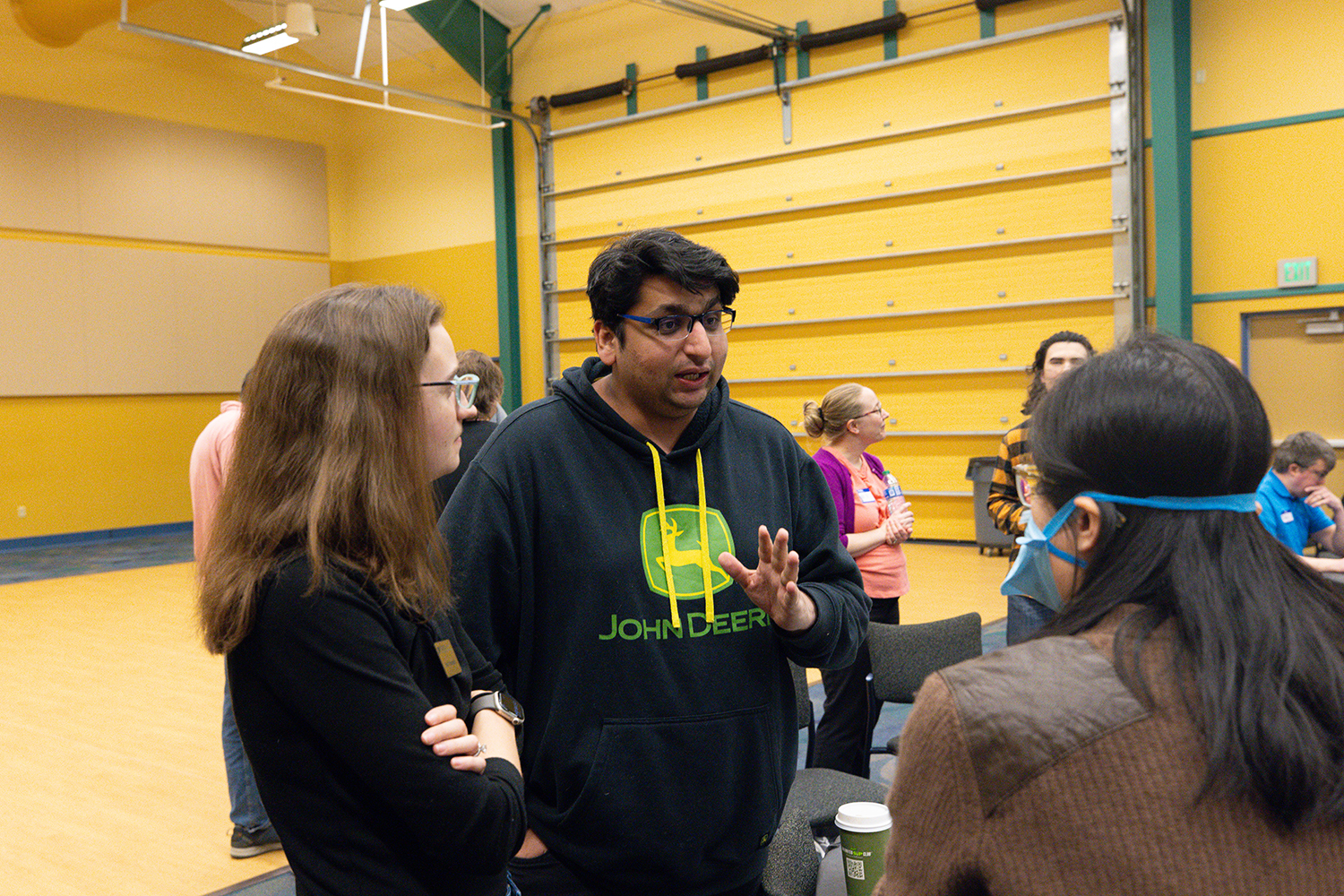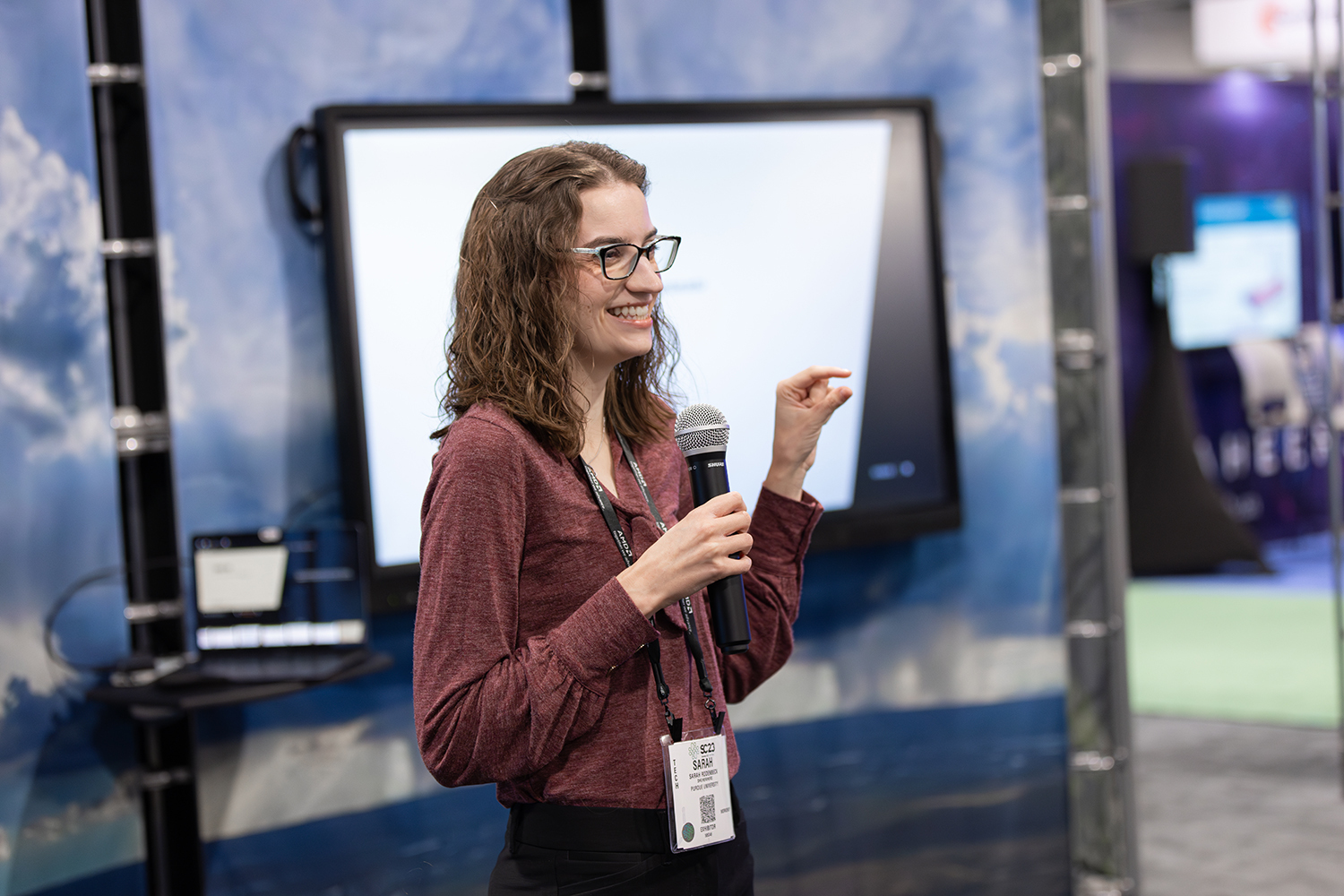News & Events
- There are no upcoming Student Events at this time.
Meet Your Mentor!
We sat down with our 2025 Anvil REU Mentors to discuss their role at RCAC, what their REU students will be working on, and much, much more. Keep reading below to learn more about your mentor.
Sarah Rodenbeck
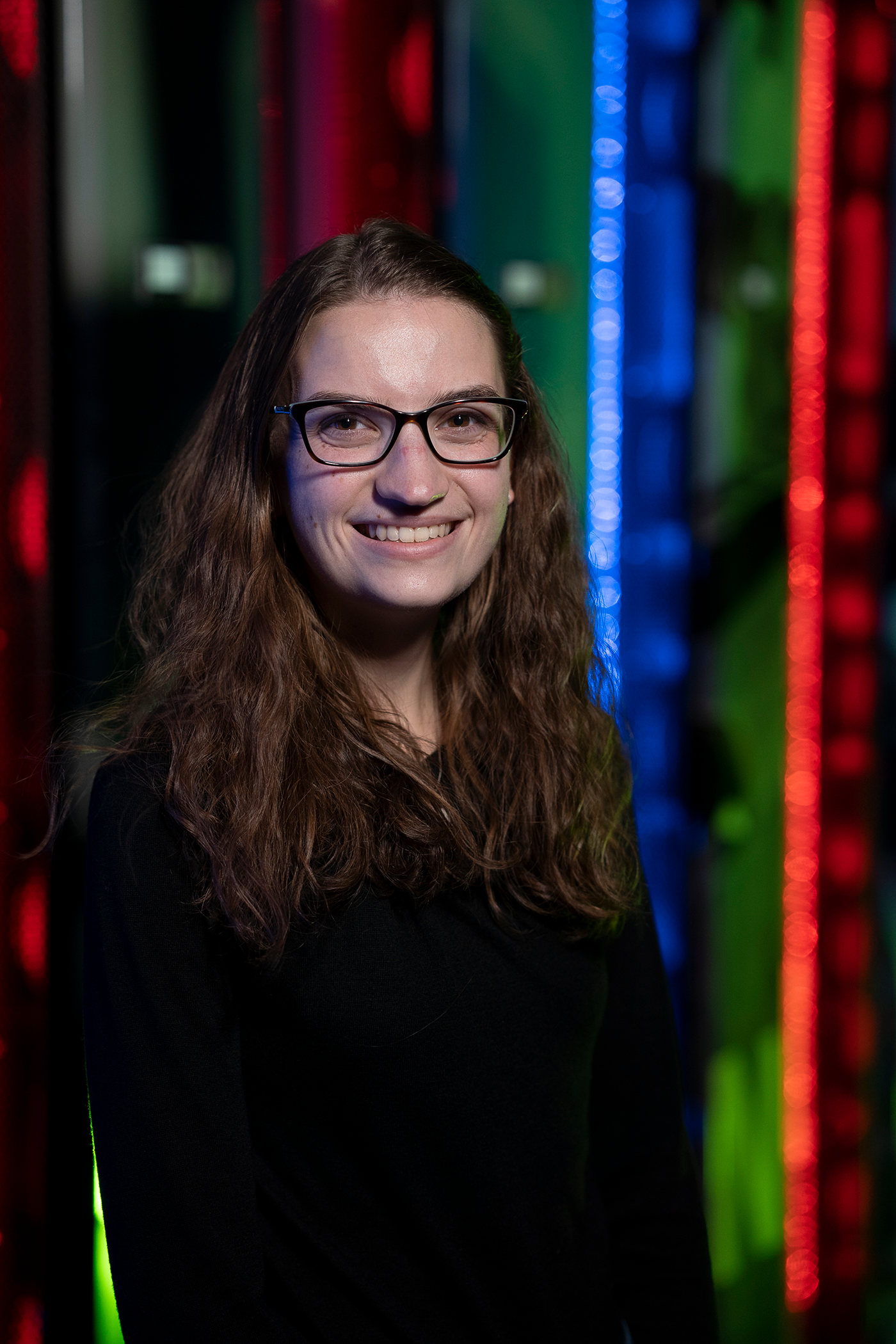
Please introduce yourself
I am a lead research data scientist at RCAC and my work is primarily focused around AI and machine learning. Most of my career has been focused around natural language processing (starting before LLMs exploded in popularity!), but I like to consider myself a full-stack data scientist; beyond traditional data science, I enjoy data engineering and ML Ops as well.
What do you do?
I work on a variety of things, but my work primarily falls within two categories: internal data science work focused on helping improve RCAC operations with data science/AI, and researcher-facing work where I consult with researchers throughout the university on data and AI-related aspects of their work.
Why would I come to you for help?
I am happy to help with anything related to machine learning or data science, from data pre-processing techniques all the way through modelling and deployment.
What's your go-to productivity trick?
Carving out time for deep work. I think it’s easy for the day to become fragmented by meetings, but that constant context switching makes progress slower. When I really need to focus on something, I like to temporarily mute my notifications and put on noise-cancelling headphones. Even though I work from home I find that the headphones help act as a cue to my brain to focus.
What was your first job?
My first tech-related job was as a software engineering intern. While it was a good experience, I learned that software engineering wasn’t my favorite; I much prefer data/analytics-focused projects!
How long have you been on the Anvil team/at RCAC?
I joined RCAC in 2021, right around when Anvil was being brought online.
Fun Fact:
I love staying active outside of work – I recently picked up the sport of rowing and really enjoy the mental as well as physical challenge. We’re currently training indoors, but I’m looking forward to getting back on the water in the spring!
Why did you decide to become a mentor for the REU program?
I have been lucky to have had some great mentors who have helped me grow both in my technical skills as well as professionally in offering advice and helping me find the right career path. I hope to be able to pay this forward as a mentor for the REU program and want to help the students I work with have a fantastic experience, whether or not they ultimately decide this is the type of work they like.
What will your REU students be working on specifically?
This project focuses on developing a user-friendly web interface to simplify the process of building and deploying container workloads on the Anvil Composable system. Using advanced CI/CD tools like GitHub Actions, CircleCI, or Jenkins, the goal is to create an automated, GitOps-integrated workflow. This interface will allow users to upload Dockerfiles or Singularity definition files, link Git repositories, and specify essential project details such as the project name, image name, and registry tag. The ultimate result will be a streamlined, efficient process for container management and deployment, reducing the complexity and time required for these tasks. This project offers students a chance to work with modern containerization and automation tools while contributing to the future of container orchestration on Anvil.
I will be mentoring project 4 this year — "Revolutionizing Documentation with AI: NLP and Large Language Models for Automated Solutions”. This project will be a mix of AI, LLMs, and software engineering and will focus on creating an automated tool for generating documentation with LLMs, and then integrating this tool into a custom AI-based software we have developed for analyzing trends in support requests. Creating and maintaining documentation is historically a very manual and tedious process, and with this tool we hope to provide a streamlined approach that can leverage system information and past support requests to create drafts. By integrating this tool into our existing software, this will allow staff to immediately go from identifying a common issue to updating the documentation, thereby helping other users avoid the same issue.
Why HPC?
Working in HPC allows you to be at the forefront of scientific advancement, both from the computing side as in many different academic domains. The nature of HPC means that you are constantly pushing the boundary of what’s possible and often working on things that very few, if any, other people have worked on in the past.
Why RCAC/Purdue?
I think RCAC is kind of in a sweet spot between traditional academia and industry. I love being able to work with researchers throughout the university and enjoy having the opportunity to learn continuously. However, I’ve found that I enjoy working on applied work more than pure research, and RCAC is a perfect place to do that. I get to apply AI to novel problems in a diverse domains.
Where do you see HPC/Supercomputing/Research Computing going in the next 10 years?
While AI has obviously exploded recently, training these models has truly massive power and cooling requirements. While some people have started thinking about this issue, the field of sustainable AI is still very small. I think we’ll see a lot more research about how to reduce the environmental impact of AI in the future, especially as it continues to grow in adoption.
